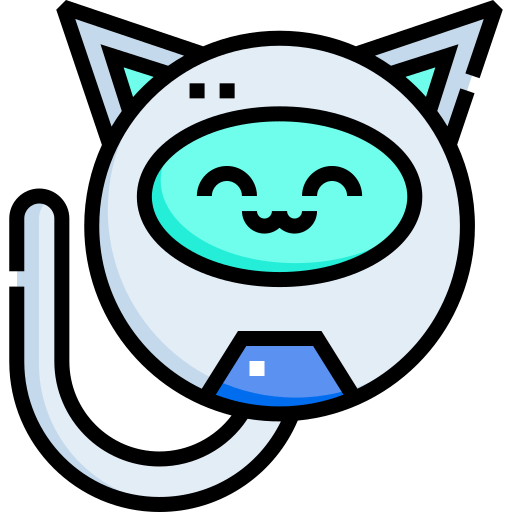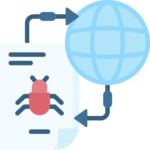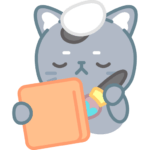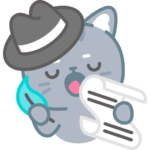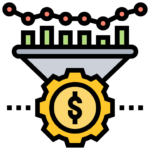
AI-driven tools can significantly enhance your sales funnel in an online store by providing valuable insights, streamlining processes, and delivering personalized experiences to potential customers. Here are some ways AI can help improve your sales funnel:
- Personalized Recommendations: AI algorithms can analyze customer behavior, purchase history, and preferences to provide personalized product recommendations. By showing relevant products to individual customers, you increase the chances of converting visitors into buyers.
- Customer Segmentation: AI can segment your audience based on various factors like demographics, past behavior, and interests. This segmentation allows you to tailor marketing campaigns and messages to different customer groups, improving engagement and conversions.
- Chatbots and Virtual Assistants: AI-powered chatbots can engage with customers in real-time, answering their questions, providing assistance, and guiding them through the buying process. This improves customer support and can lead to higher customer satisfaction.
- Predictive Analytics: AI can analyze vast amounts of data to make predictions about customer behavior, including predicting which leads are more likely to convert into customers. This helps you prioritize your efforts and resources more effectively.
- Abandoned Cart Recovery: AI tools can identify customers who abandoned their carts and send personalized reminders or incentives to encourage them to complete the purchase, increasing conversion rates.
- Optimize Pricing and Promotions: AI algorithms can analyze competitor pricing and market demand to help you optimize your pricing strategy. Additionally, AI can suggest the most effective promotional offers based on customer behavior and historical data.
- Content Personalization: AI can customize website content, product descriptions, and marketing emails to match the preferences and interests of individual customers, leading to a more engaging experience.
- A/B Testing and Optimization: AI can automate A/B testing of different website layouts, product images, or marketing messages to determine which versions perform best in terms of conversion rates, ultimately optimizing your sales funnel.
- Fraud Detection and Security: AI can detect and prevent fraudulent transactions and activities, ensuring a safe shopping experience for your customers and protecting your online store from potential threats.
- Inventory Management: AI-powered inventory management systems can help you optimize stock levels, ensuring that popular items are always in stock and reducing the risk of overstocking.
By leveraging AI-driven tools in these ways, you can streamline your sales funnel, increase customer satisfaction, and ultimately boost revenue and business growth in your online store.
AI-driven tools to help you optimize the sales funnel in your online store
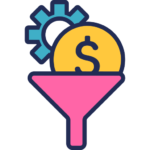
Before choosing any AI-driven tool, assess your specific needs, budget, and compatibility with your existing systems. Additionally, keep in mind that new tools and advancements in AI technology are emerging every month, so always conduct thorough research to find the most suitable solutions for your online store.
- Google Analytics: Google Analytics offers advanced analytics and reporting features, including AI-powered insights and audience segmentation. It helps you understand customer behavior, identify high-converting traffic sources, and optimize your website for better conversions.
- Chatbots and Virtual Assistants: Tools like Chatfuel, ManyChat, and Drift provide AI-powered chatbots and virtual assistants that can engage with customers in real-time, answer questions, and guide them through the buying process, leading to improved customer support and higher conversion rates.
- Dynamic Yield: Dynamic Yield offers personalization and customer experience optimization solutions. It uses AI to deliver personalized product recommendations, content, and offers to users, increasing engagement and conversions.
- Optimizely: Optimizely is an experimentation platform that utilizes AI to conduct A/B testing and multivariate testing. It helps you optimize various elements of your online store, such as website layout, product pages, and marketing messages, to improve conversion rates.
- Personyze: Personyze is a personalization and recommendation engine that uses AI to deliver personalized content, product recommendations, and pop-ups to visitors based on their behavior and preferences.
- Nosto: Nosto is an AI-powered e-commerce personalization platform that analyzes customer behavior and provides personalized product recommendations, email marketing, and onsite content personalization.
- Rejoiner: Rejoiner focuses on cart abandonment recovery, using AI-driven emails to send personalized reminders and incentives to customers who left items in their shopping carts, thereby boosting conversion rates.
- IBM Watson Marketing: IBM Watson Marketing offers AI-powered solutions for customer segmentation, email marketing, and content personalization to enhance customer engagement and conversion rates.
- Lifesight: Lifesight is a location intelligence platform that uses AI to analyze customer location data and behavior to deliver personalized marketing campaigns and improve targeting.
- Sentient Ascend: Sentient Ascend is an AI-powered conversion rate optimization tool that uses genetic algorithms to test multiple website variations simultaneously, allowing for faster and more efficient optimization.
What is the concept of Sales Funnel
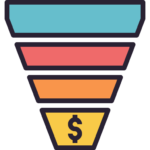
The concept of a Sales Funnel in an online store refers to the process that potential customers go through from the moment they become aware of your products or services to the point of making a purchase. It visualizes the customer journey and is designed to guide users through specific stages with the ultimate goal of converting them into paying customers.
Here’s a detailed explanation of the Sales Funnel stages in an online store:
- Awareness: At the top of the funnel, the focus is on creating awareness of your online store and its offerings. This stage involves various marketing efforts such as advertising, content marketing, social media, search engine optimization (SEO), and other strategies to attract potential customers to your website.
- Interest: Once potential customers are aware of your online store, the next stage is to capture their interest. This involves providing valuable content, product information, and engaging experiences to keep them on your site and entice them to explore further. The goal here is to build interest in your products or services and encourage visitors to consider making a purchase.
- Consideration: In the consideration stage, potential customers are evaluating their options and comparing products or services. This is the time to highlight the unique selling points of your offerings, provide customer reviews and testimonials, and offer additional information that can help them make an informed decision.
- Intent: At this stage, potential customers have expressed their intention to make a purchase. They might add items to their shopping cart, sign up for an account, or initiate the checkout process. However, some users might abandon their carts or hesitate to complete the purchase.
- Conversion: The conversion stage is where potential customers become actual paying customers. They complete the purchase and make a transaction. The conversion rate measures how effectively your sales funnel is turning prospects into customers.
- Retention: After the conversion, the focus shifts to customer retention. Satisfied customers are more likely to become repeat buyers, so it’s essential to provide excellent post-purchase support, personalized recommendations, loyalty programs, and other initiatives to encourage repeat business.
- Advocacy: The final stage involves turning satisfied customers into brand advocates. Word-of-mouth marketing is powerful, and happy customers can help promote your online store through reviews, social media, and referrals, further expanding the top of the sales funnel and attracting new potential customers.
It’s important to track and analyze each stage of the sales funnel to identify potential bottlenecks and areas for improvement. By understanding how users progress through the funnel and optimizing their experience at each stage, you can enhance conversion rates and drive sustainable growth for your online store.
